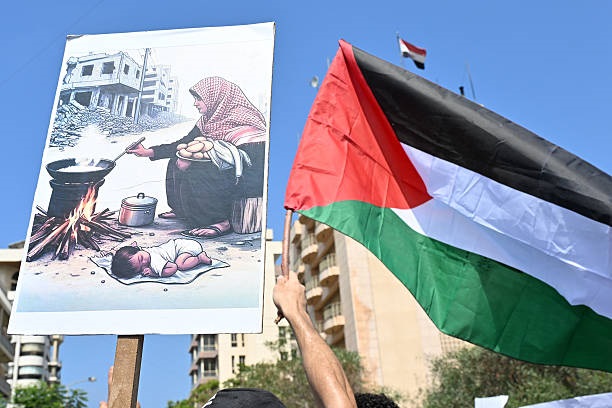Despite Egypt’s order to open the Rafah crossing, no aid has entered Gaza due to Israeli obstruction. Starving children and the elderly remain without food, water, or medicine as the humanitarian crisis deepens and international pressure mounts.
Rafah Crossing Blocked as Starving Palestinians Trapped Without Aid in Gaza


Rafah Crossing Blocked: Starving Palestinians Trapped as Aid Remains Stuck at Egypt-Gaza Border
Rafah, Gaza-Egypt Border – July 26, 2025 — The humanitarian crisis in the Gaza Strip has reached a breaking point as the Rafah crossing, the critical entry point for aid between Egypt and Gaza, remains blocked. Despite Egyptian President Abdel Fattah el-Sisi’s recent directive to open the crossing for aid shipments, no relief has been allowed through — leaving tens of thousands of Palestinians, including starving children and elderly, without access to essential supplies.
The blockade comes amid increasing restrictions by Israel, which has intensified its control over aid flows into Gaza. Humanitarian organizations report that trucks carrying food, medicine, and water have been halted at the Egyptian side of the border for days, creating a bottleneck while Gaza's population faces worsening shortages and growing desperation.
Eyewitnesses describe heartbreaking scenes at hospitals and refugee shelters. "We’re watching children waste away without food, and the elderly collapse from dehydration," said a doctor working at a hospital in southern Gaza. "There are no medical supplies, no clean water — and we are running out of time."
Israel has neither officially explained the latest escalation nor indicated when, if ever, aid will be allowed through. Analysts say the tightened blockade is part of a broader pressure campaign, though it has drawn widespread international condemnation for collectively punishing civilians.
Despite Egypt’s efforts, President el-Sisi’s government appears powerless to enforce the reopening of the crossing. Although he announced that the Rafah terminal was ordered to open “immediately and unconditionally” for humanitarian relief, multiple aid convoys remain stranded. Sources within the Egyptian Red Crescent and UN agencies confirm that political and military constraints — primarily on the Israeli side — have kept the crossing effectively shut.
"The Egyptian government has given verbal orders, but there are mechanisms beyond their control," said one aid coordinator familiar with the situation. "Israeli security approvals, border inspections, and diplomatic delays are choking the flow of life-saving supplies."
The United Nations has warned that the blockade could result in mass casualties if immediate action is not taken. According to UNRWA and UNICEF, over 1 million people in Gaza are facing acute food insecurity, and waterborne diseases are rapidly spreading in overcrowded shelters lacking sanitation and clean water.
“The situation is catastrophic,” said Philippe Lazzarini, head of UNRWA. “Children are starving, hospitals are collapsing, and every hour of delay means more lives lost.”
Meanwhile, international pressure on Israel and Egypt is mounting. Human rights groups, including Amnesty International and Human Rights Watch, have called on both countries to honor their obligations under international law and allow unimpeded humanitarian access.
As frustration grows across the region, protests have erupted in Cairo and other Middle Eastern capitals, demanding immediate relief for Gaza’s civilian population. Still, trucks remain idle on the Egyptian side of the Rafah crossing — a grim symbol of humanitarian paralysis.
Unless the blockade is lifted in the coming hours, aid officials fear a total collapse of the remaining support systems inside Gaza, leading to widespread hunger, medical breakdowns, and preventable deaths on a massive scale.

 বাংলা
বাংলা  Spanish
Spanish  Arabic
Arabic  French
French  Chinese
Chinese 







